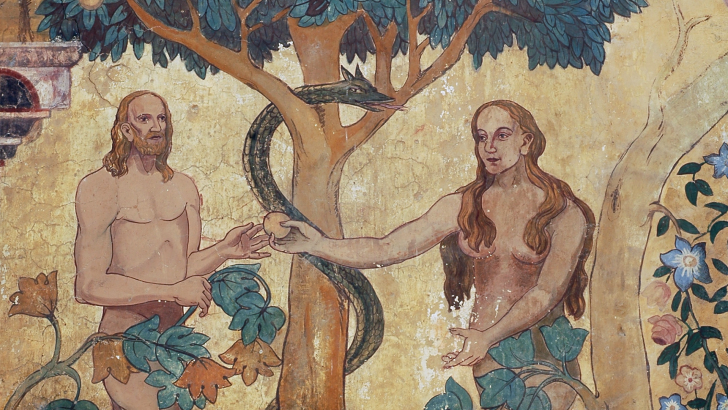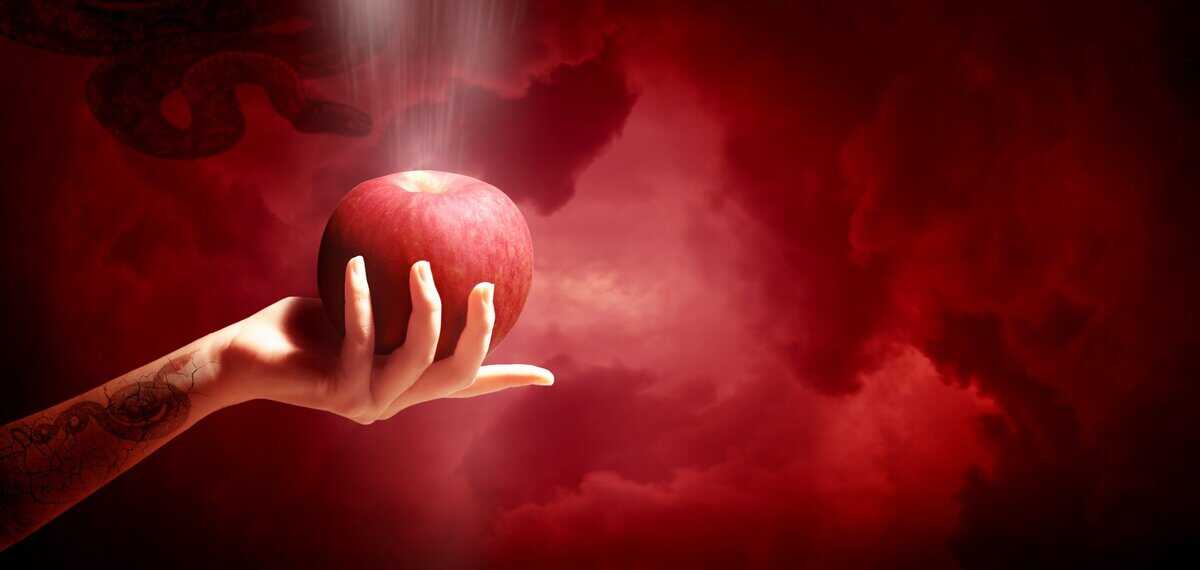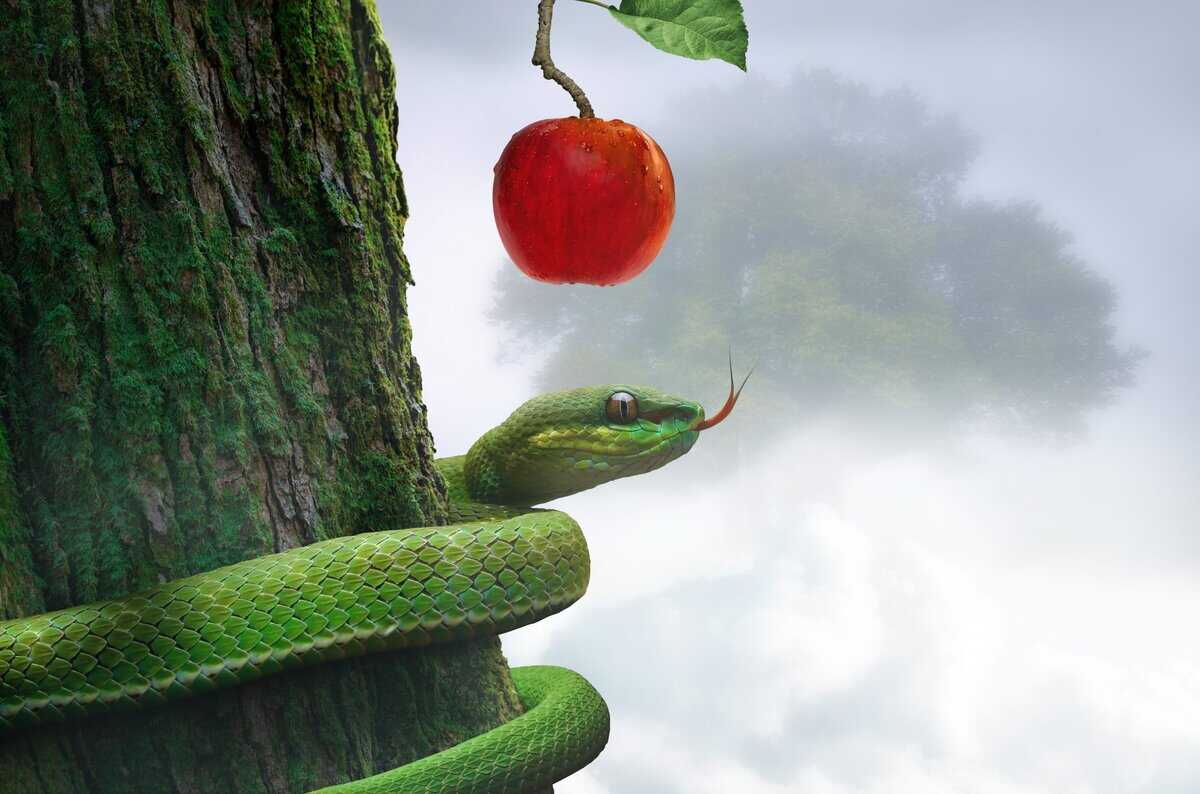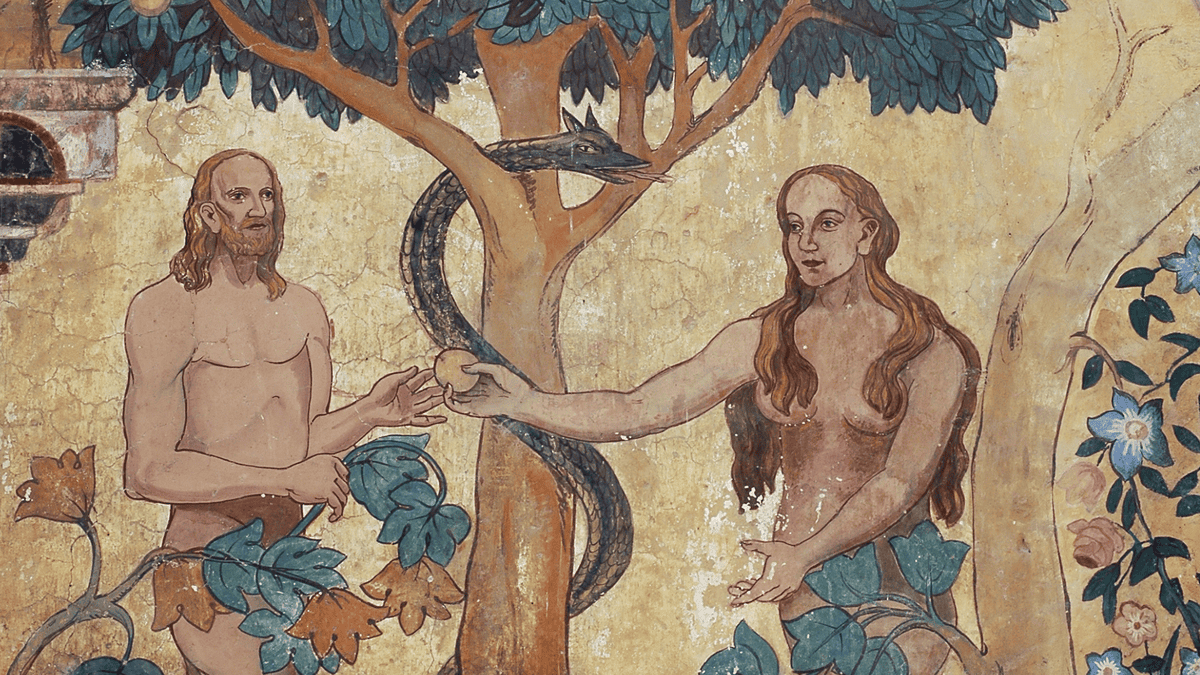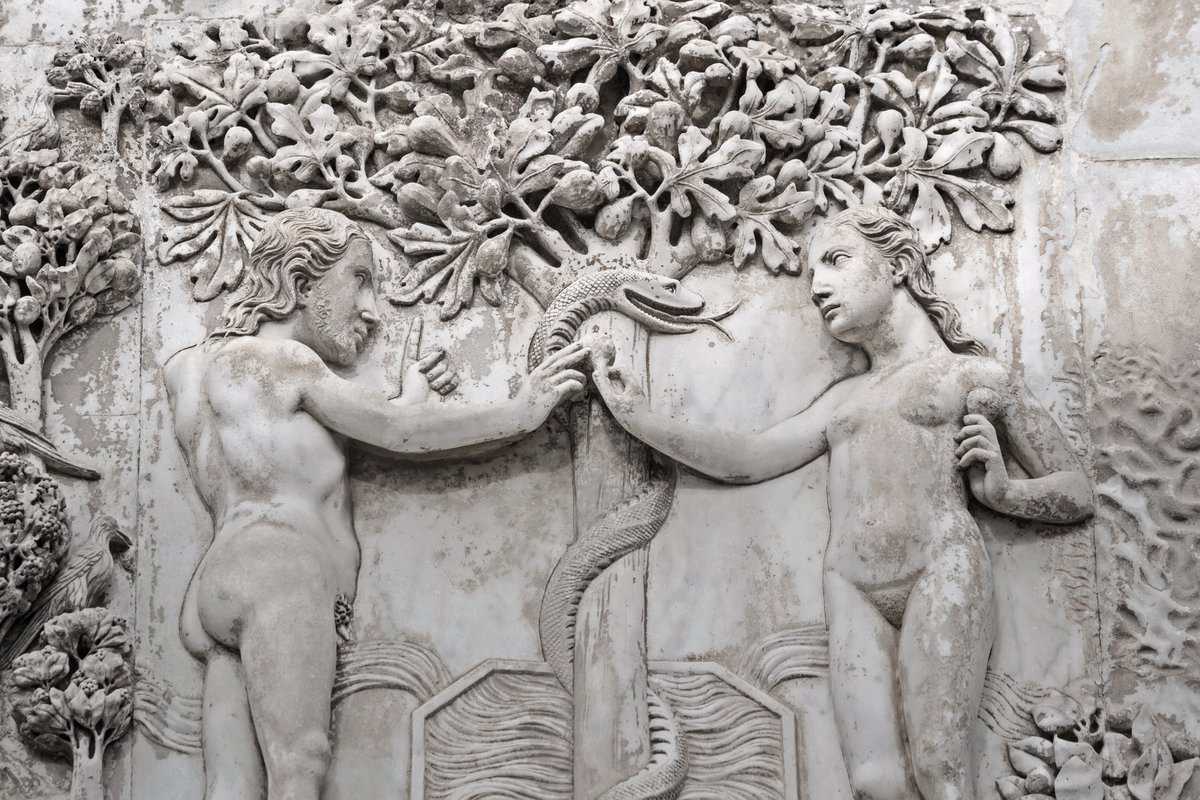The story of Adam and Eve is still one of the most popular and most enigmatic stories even today.
There are many unanswered questions about their lives, the circumstances, and the ‘sin’ itself.
Many of us have found this story puzzling, but are there answers hidden beneath many layers of the story?
Were Adam and Eve Real or Symbolic?
One of the oldest controversies is whether Adam and Eve were real people or just symbols of humanity waking up.
Some religious academics think they are historical ancestors, while others think their story is a spiritual allegory about being mindful of your morals and consciousness.
In a spiritual sense, they could represent the time when people got free will, or the ability to choose between impulse and higher thought. Their narrative tells us that truth can be found in both facts and metaphors.
The narrative of Adam and Eve, whether it is true or a metaphor of God, nonetheless affects how we think about beginnings, choices, and the mystery of being human.
What Was the Real Meaning of the Forbidden Fruit?
The fruit that altered everything is still one of the most talked-about symbols in history. Was it real or spiritual? A lot of people think that the fruit stands for knowledge, or knowing what is right and wrong.
It could represent the initial stride of humanity into consciousness, when innocence met understanding. Some people claim that the “fruit” wasn’t a real thing at all but the start of desire, curiosity, and being unique.
Whatever it was, it was the point in human evolution when we stopped just existing and started asking questions. The narrative makes us think about how curiosity may both help and hurt the spirit.
Why Did the Serpent Target Them?
People have described the snake as a tempter, a teacher, and even a liberator, but its exact purpose is still unknown. Was it bad, or was it just a divine duty to stir people up?
In many old traditions, the snake stands for change and new life. Maybe it wasn’t designed to hurt people but to test their choices and stir up their free will.
In this way, the snake becomes a mirror that makes Adam and Eve face their own duality: instinct vs. wisdom. The question remains: was the snake an antagonist or the concealed catalyst that initiated humanity’s evolution?
Why Was Knowledge Punished?
One of the most confusing questions is why trying to learn got people in trouble. If learning is holy, why was it not allowed?
This paradox argues that having information but not wisdom might be harmful in a spiritual way. When Adam and Eve became aware, they also felt shame, which shows that being enlightened comes with responsibility.
Maybe the “banishment” wasn’t a punishment at all, but a result that led to self-awareness and responsibility. The fall of humanity from the garden may not represent failure but rather an initial phase of growth.
The divine message may be that wisdom must grow up before the soul may comfortably carry it.
What Happened After the Garden?
After Adam and Eve were cast out of the Garden of Eden, their story became a hushed mystery. How did they live? How did they let go of their anger?
This part of the story is about the spiritual path of all people: learning to live with flaws and still look for the light. Their life outside Eden mimics ours: working, caring, struggling, yet still connected to the holy flame within.
Some say their greatest display of faith wasn’t in paradise, but after losing it: continuing to love and create in a world that no longer felt idyllic.
The question of what they were after the fall may represent our own need for salvation.
Was the Fall Truly a Fall, or a Beginning?
The most significant issue is whether humanity genuinely fell or merely developed. The story of Adam and Eve may not be about sin in a spiritual sense but about change.
The garden stands for innocence, whereas the outside world stands for awareness. Life got complicated after they left paradise, but it also became significant.
Pain, love, and creation all become possible. Their choice made a way for free will, empathy, and growth. It is possible that the “fall” was not the end of humanity but rather the initial step towards divinity through experience.
The biggest enigma hidden in these questions could be that imperfection is the way back to God.
Born and raised in Bosnia and Herzegovina. Ever since I was a little girl, my imagination knew no bounds. I remember vividly how I’d scribble down short stories, each page bursting with adventures and characters conjured up from the whimsy of my mind. These stories weren’t just for me; they were my way of connecting with my friends, offering them a slice of my fantasy world during our playtimes. The joy and excitement on their faces as we dived into my fictional realms motivated me to keep writing. This early passion for storytelling naturally evolved into my pursuit of writing, turning a childhood hobby into a fulfilling career.

